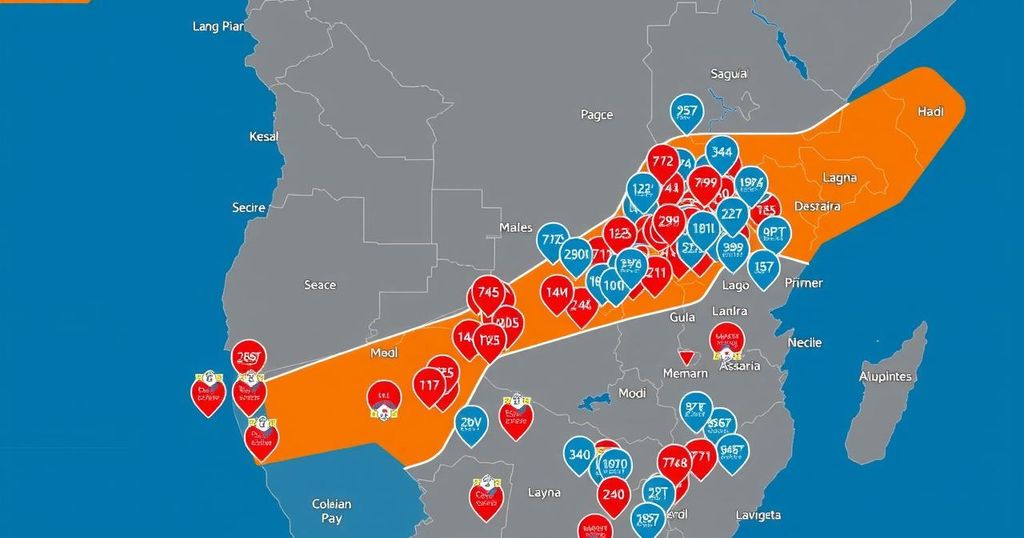UNHCR Mozambique: Update on Refugees and Displacement, Sep/Oct 2024
Mozambique currently hosts 25,000 refugees and asylum seekers while 716,878 people are internally displaced due to violence and climate change. UNHCR, with partnerships, provides vital assistance and supports the safe and dignified return of displaced individuals. The organization advocates for the integration of refugees and IDPs into national services and enhances community resilience against future challenges, amid the ongoing impacts of severe cyclones.
As of September/October 2024, Mozambique is home to approximately 25,000 refugees and asylum seekers, amid a staggering 716,878 internally displaced persons (IDPs) due to violence from non-state armed groups and the climate crisis. The country ranks among the most impacted by climate change, evidenced by the catastrophic consequences of Tropical Cyclones Freddy and Gombe, which have collectively affected over one million individuals, inflicted serious infrastructure damage, and forced the displacement of around 184,000 people.
The United Nations High Commissioner for Refugees (UNHCR), in collaboration with various partners, including the Government of Mozambique, is committed to providing essential protection services and assistance to refugees, asylum seekers, IDPs, and returnees, as well as to host communities. There is an ongoing emphasis on enhancing community resilience while working toward sustainable solutions for those affected by displacement. This past year alone, an impressive 610,981 individuals have returned to their places of origin, although many confront inadequate living conditions and lack basic services.
UNHCR firmly advocates for the return of refugees and IDPs to occur in a manner that is safe, voluntary, dignified, and informed. Furthermore, the organization promotes the incorporation of displaced individuals into national services and systems, including climate-related disaster planning and response initiatives. In parallel, UNHCR is intensifying its collaboration with development and peace-building organizations, all aimed at fostering the inclusion of displaced populations in expanded programming efforts.
Mozambique has faced profound challenges stemming from both human conflict and environmental crises, which have led to significant displacement within the country. The continuous threat from non-state armed groups has contributed to the internal displacement of over 716,878 individuals. Concurrently, Mozambique’s vulnerability to natural disasters, exacerbated by climate change, has led to severe humanitarian emergencies. Cyclone Freddy and Cyclone Gombe represent considerable setbacks, affecting infrastructure and displacing thousands. As Mozambique navigates these multifaceted crises, organizations like UNHCR play a crucial role in offering protection and support to the affected populations.
The situation in Mozambique underscores the intertwined nature of conflict, displacement, and climate change impacts. Through ongoing efforts, the UNHCR aims to ensure that the rights and needs of refugees, asylum seekers, and IDPs are met with dignity and respect. Additionally, the inclusion of these populations within national frameworks remains a priority, alongside building community resilience to withstand future adversities. Collaborative efforts are essential to facilitate comprehensive solutions that address both immediate needs and long-term sustainable development.
Original Source: reliefweb.int




Post Comment